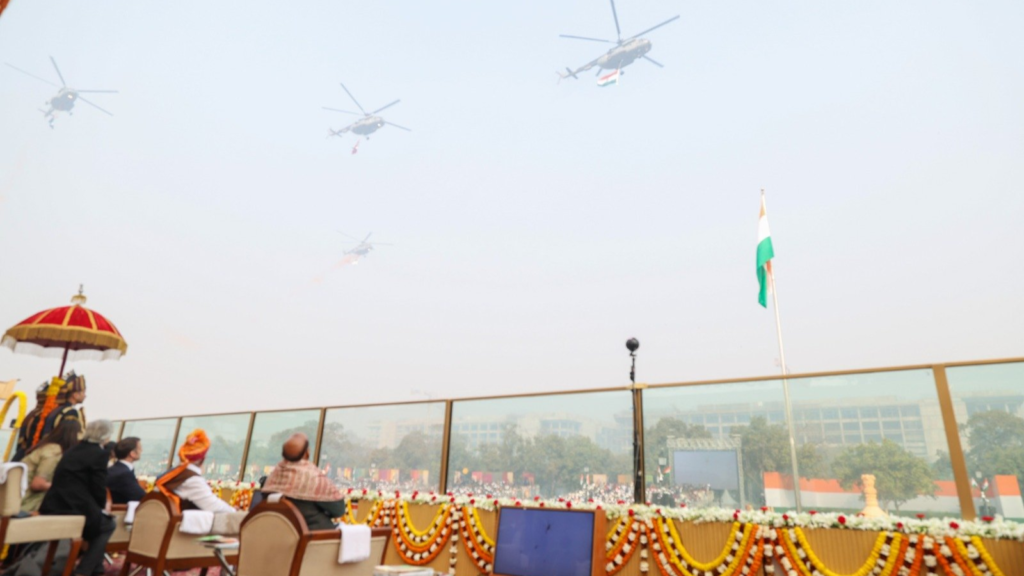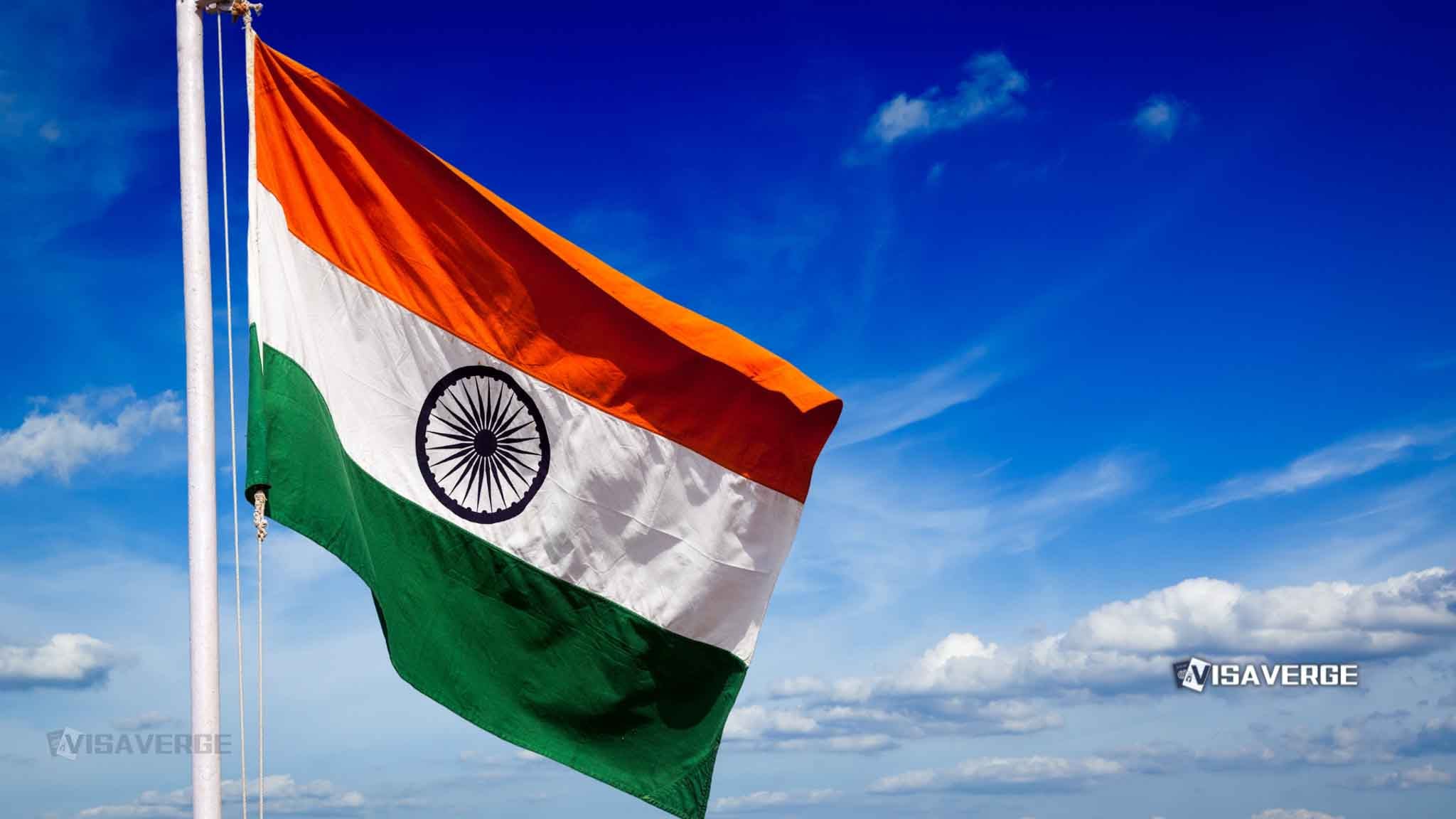Key Takeaways
• Eight rural Odisha students will present at Global Junicorn and AI Summit 2025, May 29-30, Texas State University.
• Selected from 30,000 students, their projects tackle real-world problems like farming, waste, tradition, transport, and tools.
• Young Tinker Foundation’s outreach supports rural innovation, hands-on learning, and access to global opportunities for youth.
Eight rural high school students from Odisha, India, are set to travel to the United States 🇺🇸 where they will present their creative projects at the Global Junicorn and AI Summit 2025. This event will happen on May 29 and 30 at Texas State University. For these students, this is more than a simple trip – it is a chance to stand on a world stage, share solutions shaped by their own experiences, and show the world that young minds from small villages can make a big difference.
A Remarkable Journey: How Rural Talent from Odisha Reached the World Stage

These eight students were not randomly selected. Over six months, the Young Tinker Foundation searched across 150 schools in Odisha, reaching about 30,000 students. The foundation, led by Anil Pradhan, visited even the most remote regions to spot ideas created for real-life problems. All eight chosen students come from rural backgrounds and mostly attend government schools, where resources and funding can be very limited.
The Young Tinker Foundation’s main aim is simple: let children notice problems around them and try making things to help. The children did just that. They saw the issues facing their families and neighbors—like struggling farmers, waste piling up, cooking losing traditional tastes, a lack of clean transport, and the need for better tools and clothing. Then, they got to work.
Anil Pradhan, who started and leads the foundation, said it best: The program is about giving children a stage to show what they’ve built, based on problems they face in daily life. By encouraging hands-on work instead of just reading books, the foundation helps children learn to think differently and feel proud of what they make.
Meet the Innovators and Their Projects
Each student or team has built something unique to solve a problem they see in people’s everyday lives in Odisha.
1. Helium Balloon Satellite (YTSAT 2.0)
Chiranjibi and Digbijay, both in Class 10 from Soro in Balasore, have built something quite unusual for students their age. Their project, called YTSAT 2.0, uses a special helium balloon fitted with LAR nano sensors and other simple computers. The balloon floats above farms and collects live data about soil, water, and air conditions. This information is sent down to small farmers, helping them decide which crops will grow best on their land at any given time. Instead of guessing or using old advice, farmers can now plan with up-to-date data, making it more likely they can earn a good living.
This is especially powerful in rural India, where most farmers do not have tools that large, modern farms use. The idea is not just for Odisha – it can be adapted for many other rural regions facing the same challenges.
2. Portable Ethanol Production Machine
Kaushik Kar from Soro and Sridhar Jena from Berhampur teamed up for this next project. They noticed so much organic waste – vegetable peels, leftover leaves and stems – getting thrown away. Instead of letting it rot or burn, they decided it could be turned into something useful. Their machine takes dry organic waste and turns it into ethanol, a type of alcohol often used as fuel or in making other goods. The idea can help small communities make their own fuel, turn waste into a product they can use or sell, and reduce pollution from burning or dumping trash.
3. Masala GPT
Food is central to Indian culture, and spices are at the heart of Indian cooking. P. Aditya Das and Soumya Saurabh from Berhampur recognized that, for many families, the taste of homemade spice mixes is being lost as people turn more and more to factory-made blends. Their machine, called Masala GPT, prepares spice mixes on demand, allowing each cook to make blends that taste just like the ones their grandmothers made. By preserving these tastes, their device also helps keep family traditions alive. It’s not just about flavor – it’s about history and identity, too.
4. Sovadi (Solar-Powered Car Model)
Sai Satyam Pradhan from Nimapada wants to help solve the problem of pollution and high fuel costs. He built Sovadi, a model car fitted with solar panels. These panels catch sunlight and turn it into power, moving the car without any petrol or diesel. While it is currently a small model, the main point is to show that it’s possible for even simple vehicles to use clean energy. If such technology spreads, it can help reduce pollution and make travel cheaper in the long run.
5. EDEN (Clothing and Hand-Built Tools)
Jagyan Mishra from Bhubaneswar takes a different approach. He has designed a line of clothing and also crafted tools by hand, which he will showcase at the Dallas exhibition. His work focuses on both usefulness and style, reminding people that local knowledge and traditional skills are still valuable today. Clothing designed for comfort in hot weather, and tools built for daily use, can be just as important as high-tech inventions when it comes to improving lives.
Why This Event Matters
Opportunities like the Global Junicorn and AI Summit 2025 are rare for rural students, especially those from areas with fewer resources. These young innovators will stand alongside others from around the globe at Texas State University, showing that creativity is not just found in big cities or expensive schools. Instead, it often comes from facing problems head-on and working to improve life for families and neighbors.
The event gives students a chance to:
- Share their solutions with experts, investors, and other students from many countries.
- Learn how to make their projects even better through meetings and workshops.
- Inspire others at home in Odisha and across India to take pride in their ideas and talent.
- Connect with possible partners who might help them bring these ideas to more people.
According to Anil Pradhan, the world will see not only what these children have built but also the pride of Odisha on an international stage. Their journey underscores the value of investing in rural education and hands-on learning.
The Role of the Young Tinker Foundation
The Young Tinker Foundation did not just wait for students to come forward. They went out to rural schools, encouraging participation from places that are often overlooked. By running their talent hunt across 150 schools and involving about 30,000 students, they uncovered hidden talent and made sure that selection was fair and open.
The selection process was rigorous and transparent, ensuring that only the most promising ideas received support to reach the global stage. The foundation offered advice, technical support, and encouragement throughout the journey, showing the students that their ideas matter.
Their work does not end with just sending a team abroad. By helping young people learn through creating and building, the Young Tinker Foundation is sparking a bigger movement. More children are encouraged to look for problems in their own surroundings and believe they can make a difference, no matter where they come from.
What This Means for Odisha and Beyond
The success of these eight students is not just a personal victory. It sends a strong message about what is possible when rural students are given support and encouragement.
- For Students and Families: It builds pride and hope. Children see it is possible to dream big, even from a simple government school.
- For Teachers and Schools: It proves that with support, rural schools can produce inventors and innovators just like urban private schools.
- For Policymakers: It highlights the benefits of investing in hands-on science and technology programs, even in small villages.
- For Other Countries: The model of the Young Tinker Foundation can inspire similar programs elsewhere, helping rural youth worldwide.
As reported by VisaVerge.com, the unfolding story of these young innovators encourages other communities to consider the power of practical education and rural engagement. When students are trusted and challenged, they often produce fresh solutions to long-standing problems.
The Bigger Picture: Immigration, Mobility, and Cultural Exchange
This story also brings attention to the role of student travel programs and international summits in shaping global talent. Immigration and cross-border travel for studies, work, or sharing ideas have changed many lives.
For these students from Odisha, visiting the United States 🇺🇸 for the Global Junicorn and AI Summit 2025 will open many doors, including:
- Exposure to new cultures and ways of thinking.
- Making friends and contacts from around the world.
- Bringing fresh knowledge and confidence back to Odisha.
For the United States 🇺🇸, programs like these show the country’s ongoing interest in welcoming young talent and supporting global learning. Events at American universities allow youth from many countries to share their views, helping people from different backgrounds work together.
Students who travel for education and innovation can also look into programs such as the U.S. Exchange Visitor (J-1) visa, which helps people take part in exchanges involving research, study, or teaching. For more on this, readers can visit the official U.S. Department of State Exchange Visitor Program page.
Challenges and the Way Forward
While the story so far is mostly positive, there are some hurdles:
- Access: Many rural students still struggle with poor internet, outdated equipment, and a lack of mentors.
- Funding: Projects often need more than just good ideas. Without funds, many creative solutions can’t reach even the local stage, let alone a global audience.
- Recognition: While events like the Global Junicorn and AI Summit 2025 offer great exposure, not all students get this chance. Continuing these programs and investing in rural education is key.
The Young Tinker Foundation and similar groups work hard to fill these gaps, but lasting change will need support from the government, local leaders, schools, and larger society.
A Moment of Pride for Odisha – and an Example for the World
It is not every day that a group of students from rural Odisha catch the eye of the world’s scientific and innovation communities. Their journey to Texas is an inspiration not only for their classmates but for all young people who face tough odds. It shows that with support, curiosity, and a focus on real problems, young people can both solve important challenges and earn global respect.
The Global Junicorn and AI Summit 2025 will act as a beacon, proving that the best ideas can come from the most surprising places. These students will represent not just their own villages, but the entire state of Odisha, serving as reminders that talent, when discovered early and nurtured with care, knows no boundaries.
Readers, educators, and policymakers can follow updates on programs like this through education departments and by keeping an eye on foundations such as the Young Tinker Foundation. By doing so, more bright minds might get a chance to shine both at home and abroad.
In summary, the trip of these eight students from Odisha is more than just an exciting event. It is a call for everyone to believe in the power of young rural innovators and back them with the support they need. As more students take part, the impact will grow—not just in India 🇮🇳, but around the world.
Learn Today
Global Junicorn and AI Summit 2025 → An international technology and innovation event at Texas State University, where youth present creative projects in AI and entrepreneurship.
Young Tinker Foundation → A non-profit organization supporting practical education and innovation for rural students, especially in remote Indian regions like Odisha.
Helium Balloon Satellite (YTSAT 2.0) → A student-built device using helium balloons with sensors to collect real-time agricultural data for small farmers.
J-1 Exchange Visitor visa → A U.S. visa allowing international students and professionals to participate in research, study, or cultural exchange programs.
Ethanol Production Machine → A student-developed portable device that transforms organic waste into ethanol, supporting sustainable rural energy and reducing pollution.
This Article in a Nutshell
Eight rural students from Odisha, India, will travel to Texas State University to showcase unique inventions at the Global Junicorn and AI Summit 2025. Selected from 30,000 peers, they address local issues, highlighting innovation in underserved communities, with major support from the Young Tinker Foundation empowering rural talent internationally.
— By VisaVerge.com
Read more:
• Sustainable Skies World Summit urges decarbonization in aviation ecosystem
• Northport Summit Tackles Illegal Immigration, Cyber Crime, and Drug Threats
• Chrystia Freeland Proposes Summit to Counter Trump Threats
• Quad Summit: India’s $500k Scholarships for Indo-Pacific Students
• G7 Summit Focuses on Migration Crisis in Italy













